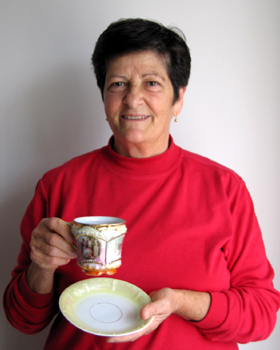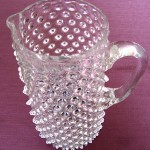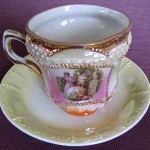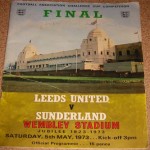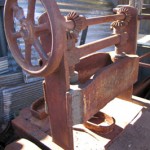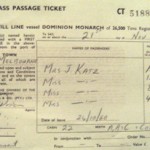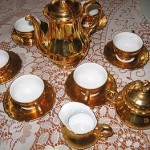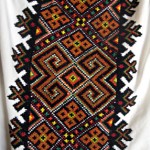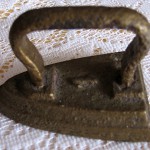Italian
San Ferdinando, Reggio Calabria, Italy
Messina, Sicily, Italy in March 1950
Sydney on 6 April 1950
With relatives in Rose Bay, Sydney for 2 nights; then my uncle’s home in Leeton in NSW’s Riverina region.
Selling home-grown vegetables at a road stall in Leeton.
Raising my family on the farm in Leeton; Letona Cannery packing shed.
I was born in 1938 in San Ferdinando, Reggio di Calabria, which is in the south of Italy. My grandfather came here to Leeton in 1929. My father was here at one stage too, but because my mother did not want to leave her mother at that time, he returned to Italy.
I was four when my father got sick and died. It was wartime (Second World War) and we had to evacuate the town, but because my mother was in mourning, we were the last to leave. It was deserted and I remember being scared. We found a place in the bush and eventually went to a cave and lived there. I remember sand dropping off the walls of the cave. We stayed there until the war was over.
My father had owned a fishing boat and my two brothers took over the fishing for a while, but my mother did not want my brothers to do that kind of work. My mother sent them to Australia to be with their uncles; her mother went to Australia with her three sons in 1936. After seven years my mother decided to go and be with them.
Leaving Italy was very sad for Mum, but for me, to tell the truth, I was excited. I was young and going somewhere else. I was going to Australia and it was a big thing to travel. One of Mum’s sisters whose husband was here came with us so it was alright for her to meet her husband again, but for Mum it was very sad. Mum was very depressed to leave her husband’s grave and we had to sell a lot of our belongings and assets to pay for the trip.
Mum bought all her things from her kitchen like the soup server, sculla pasta (colander). Mum’s most special belonging was a water jug. It is very light but looked heavy. She used to say, “be careful of the jug” – facciti nomo si rompe questo vacale.
Also this cup is for café latte; in Italy you had the small coffee or a café latte, which is popular here now. This was Mum’s wedding present. In Italy when you get married, the ladies had to supply the china and the glory box of linen and if she didn’t get the china as a wedding gift she would have to buy it later. The men used to supply kitchenwear. This was [the] tradition.
Mum made sure she packed everything with wool around the fragile things. In Italy you would weave your own mattresses out of wool and she used that wool to pack. These special things were not used everyday; they were used for special occasions or when the doctor would come around. I remember Mum being proud of these. It is nice to remember your mum with the different things that made her happy. To her they were precious to her. They were her belongings.
I was 11 when we went on the ship. There was mum and my sister who was 15 and my mother’s sister with her two children, a girl, 12, and a boy, 15. They were not going to allow him to stay in the cabin with us, but after a bit of wheeling and dealing and because he was family, they let him stay with us and we had a six berth cabin on our own and had fun.
It was beautiful on the boat, we had a lovely time. Going to eat we would sit with the same crowd at the same table. We had a table of about ten and would have a fight over who would get the best fruit. Because I was the youngest and the cheekiest I would always get the best piece.
The exciting part was when we landed in Sydney. We hadn’t been anywhere in Italy or on holidays or anything and had only known more or less sadness after dad died, so we were looking forward to a better life.
My uncle was there to meet us with relatives and we went to [their home] at Rose Bay. We had to travel around the harbour and thought Australia is beautiful and Sydney was gorgeous. We stayed for two nights.
It came time to travel to Leeton. I was so excited to find out where this Leeton was and to meet my grandmother. It was another big thing for us, I had not met her before. We travelled all night; we left Sydney at 10pm and arrived at 11am. We were all excited about the train trip, but when we arrived in Leeton everything turned around. It wasn’t what we were expecting.
Maybe it was because Sydney gave a better impression than Leeton and I thought it would be a better town. It was mainly bush and no houses around. We were disappointed when we got off at the railway station [but] it was nice to see all our friends coming to meet us. My cousins tried to do the best for us. They blew up balloons and had written a ‘Welcome Home’ sign but it didn’t mean anything to us. Then when I saw my grandmother she was very old and she cried and cried. Oh, it was so sad. Mum cried [too]. Why do they have to cry? They should be happy. There was so much emotion I guess [and] we were too young to worry about those things, we just wanted to have more fun.
We stayed at the back [of] Toorak Road with my uncle and grandmother and joined their family. In those days there were no facilities like running water or a toilet inside, no heating, no vehicle to get to town, it was so deserted. We would wake up and wouldn’t see any neighbours, like in Italy. In Italy we lived near the ocean with all the friends around and all the neighbours. Mum would cry every day, “why did I have to sell everything and come here?”
We had to stay with my uncle. We had no income and had to depend on him to feed us. It wasn’t easy for us. Even though it is your uncle’s house or your mum’s house it is not your own to do what you want. You couldn’t cook what you want, you had to eat what they served you. In those days what could you do? Mum couldn’t find work and I was too young [to work]. Where we came from there was no such thing as looking for a job, especially the woman [whose] job was ‘inside’. Our culture was to stay home.
In Italy we had the best of food because of the business my father had. You would give someone a fish and trade for what you haven’t got. We had the best of fruit and vegies, not so much in meat, but we could go without the meat because we had the beautiful fresh fish every morning. But coming here was the opposite. There was no fish, no fruit, no vegies because you had to get it from Sydney or elsewhere. You had only what was locally grown and in the winter time there was no fruit so that wasn’t easy for us. My aunty would bake bread in a wood oven. They used to have a cow so [we] had milk but no water from a tap, no hot water, no bath.
A month after we arrived we went to see my brothers who could not stay in Leeton – they couldn’t stay away from the sea and loved to fish. They moved to Ulladulla, a seaside town on the south coast of NSW. We travelled on the train again, we couldn’t speak English, both of us. I tried to make my way to where we were going.
Seeing my brothers was a bit sad but exciting. They wanted us to go and live with them, but Mum didn’t know what to do. She wanted to be with her mother at the same time as she wanted to be with her sons. We decided to stay with my grandmother.
Back in Leeton I had to go to school not that I really wanted to. Nobody would welcome you in those days. The Australians would call you ‘Dago’. I went with my cousins [who] were my age but my uncle warned them to leave me alone so I would mix with other people. A girl, who I still know today, wondered why when she asked me to play, I said, “no”. I didn’t know what I was saying and didn’t know what she was talking about. It was hard. I couldn’t read, I couldn’t write, I couldn’t speak the language and there was no-one to help you.
The nuns, I am sorry to say because I am Catholic, were very tough in those days. They were very strict and it was plain they didn’t like Italians. When the nuns [at school] had a bit of time, they used to call me over and draw a little dog and say, “D-O-G: dog”. I should have started off in first or second class so I could have learned from the beginning [but] they put me into fifth class because I was 12 years old.
Eventually, I made friends and my sister’s husband leased land on the Brobenah Road in North Leeton. Mum moved there. It was on the main road and people saw us growing vegetables, like beans, onions, peas and used to stop [to] ask if we could sell some. Finally we had a little stall and let me take care of it because fresh vegies were very scarce. That’s where I picked my language up – out of the little stall on the road, not from school. I picked it up a little more every day and as the years went by I became better and we settled into life in Leeton.
When my grandmother passed away, we went back to Ulladulla. I lived there until I got married and [returned to] Leeton. I married Saverio (Sam) Pirrottina who was from my home town in Italy. Yes, at one stage they used to call it Little San Ferdinando here! He remembered me from Italy; I had little blonde plaits and he used to pass my home going to his aunty’s house.
Eventually we became close and got married. We ended buying my grandmother’s farm and have three boys and two girls.
When I look at Mum’s belongings I remember the hard times but also rejoice that we were able to grow into a new life here in Australia.
Interviewed by:
Andrea Fernandes, NSW Migration Heritage Centre
With assistance from Carmel Pantano, Secretary, Leeton Italian Heritage Group


